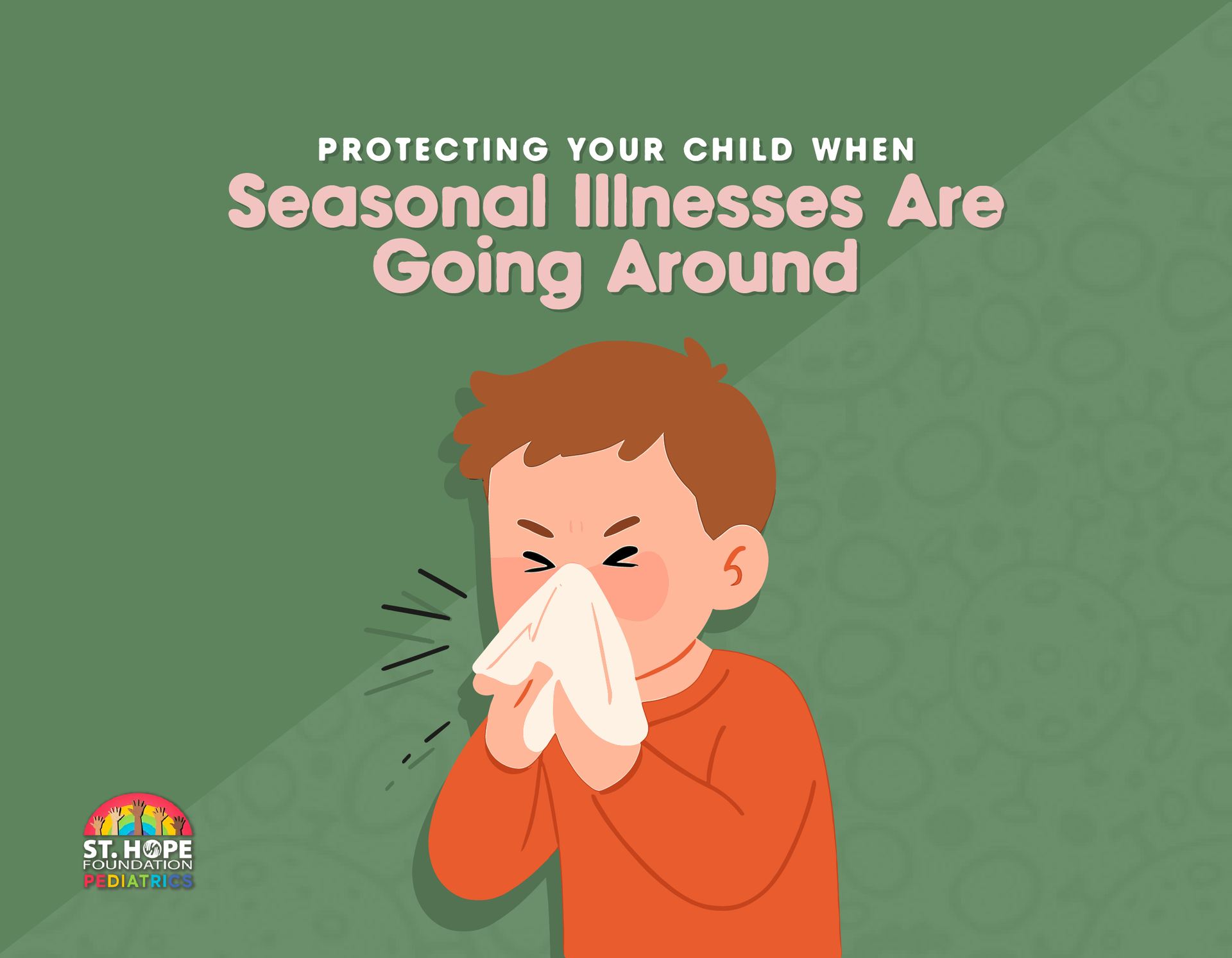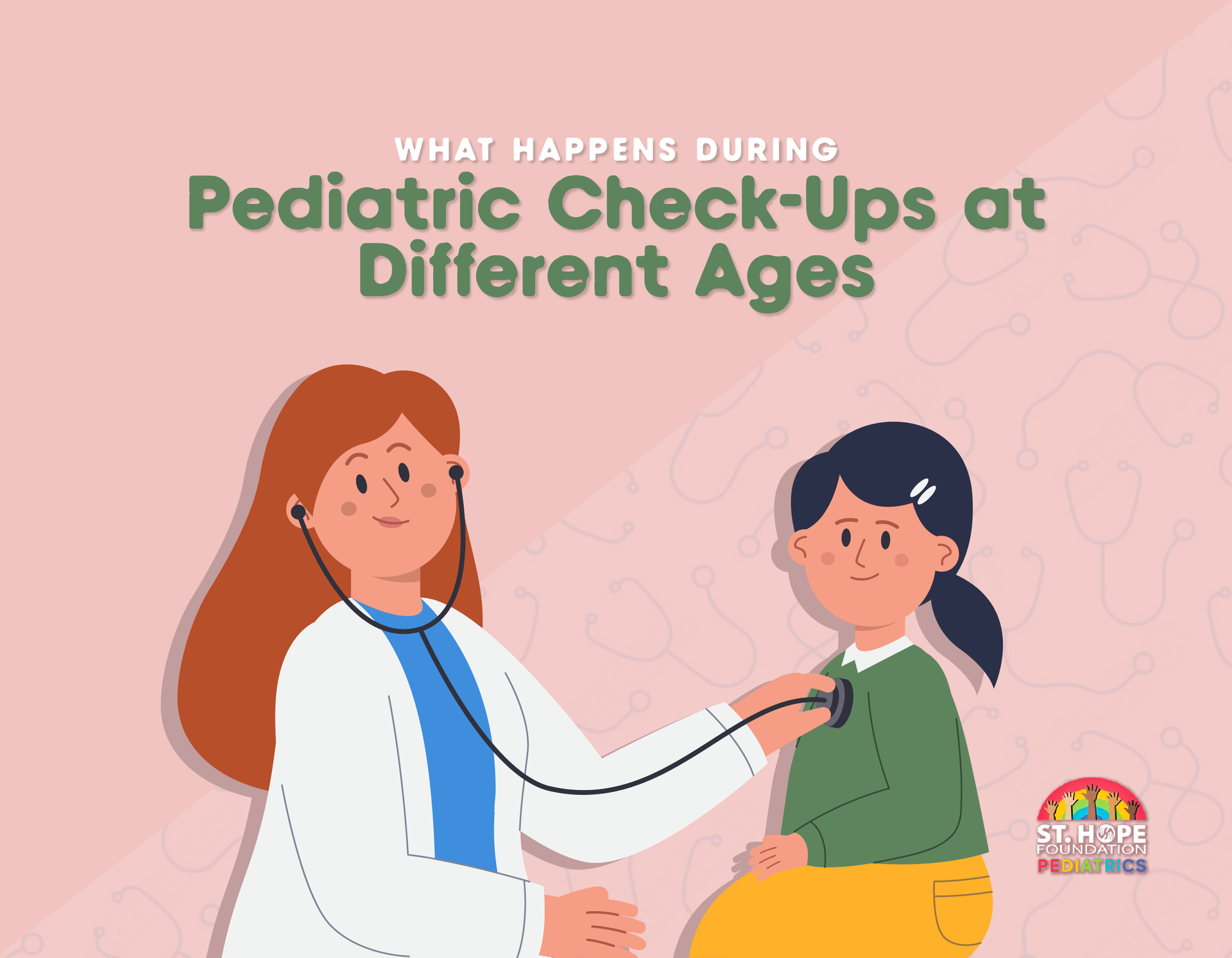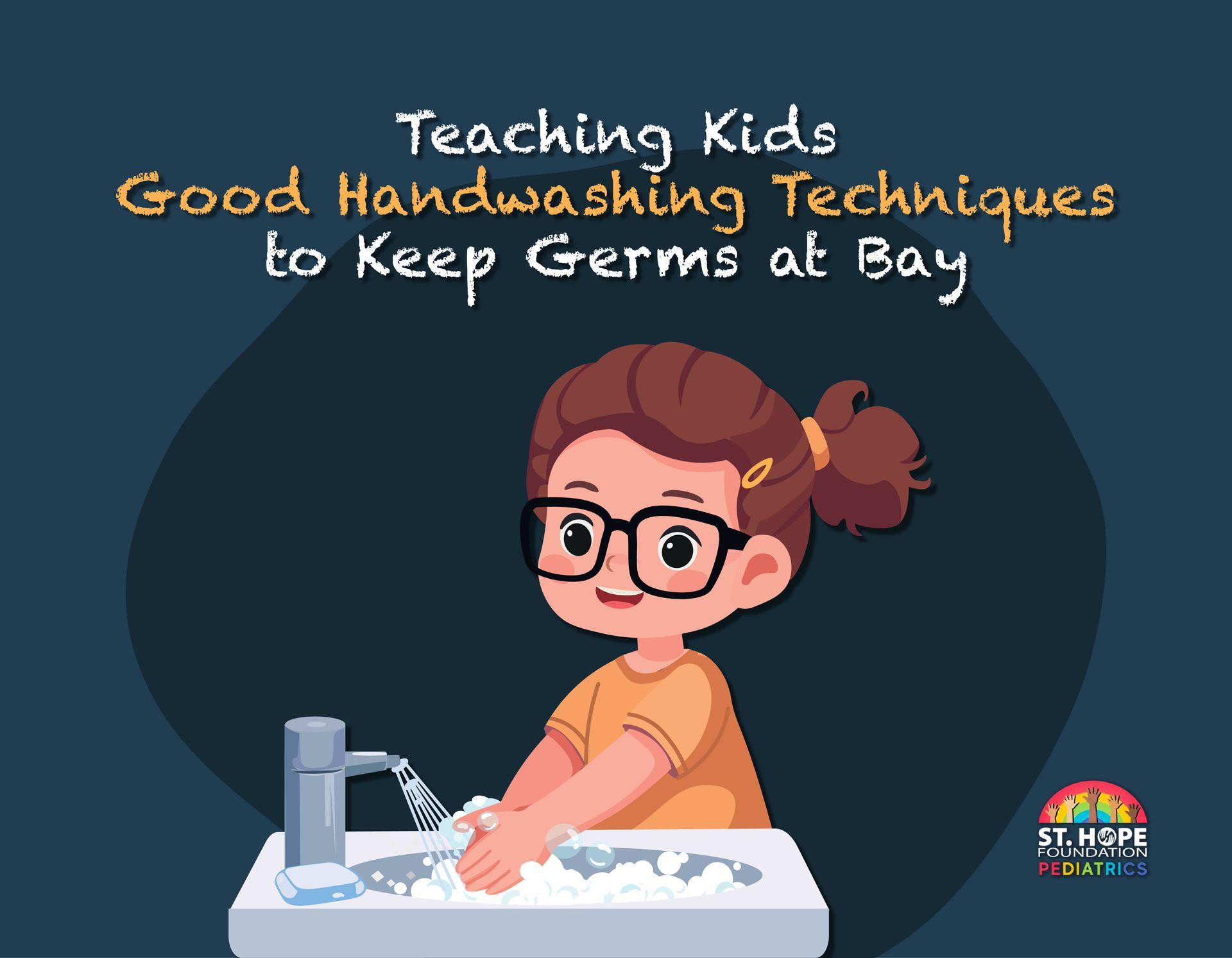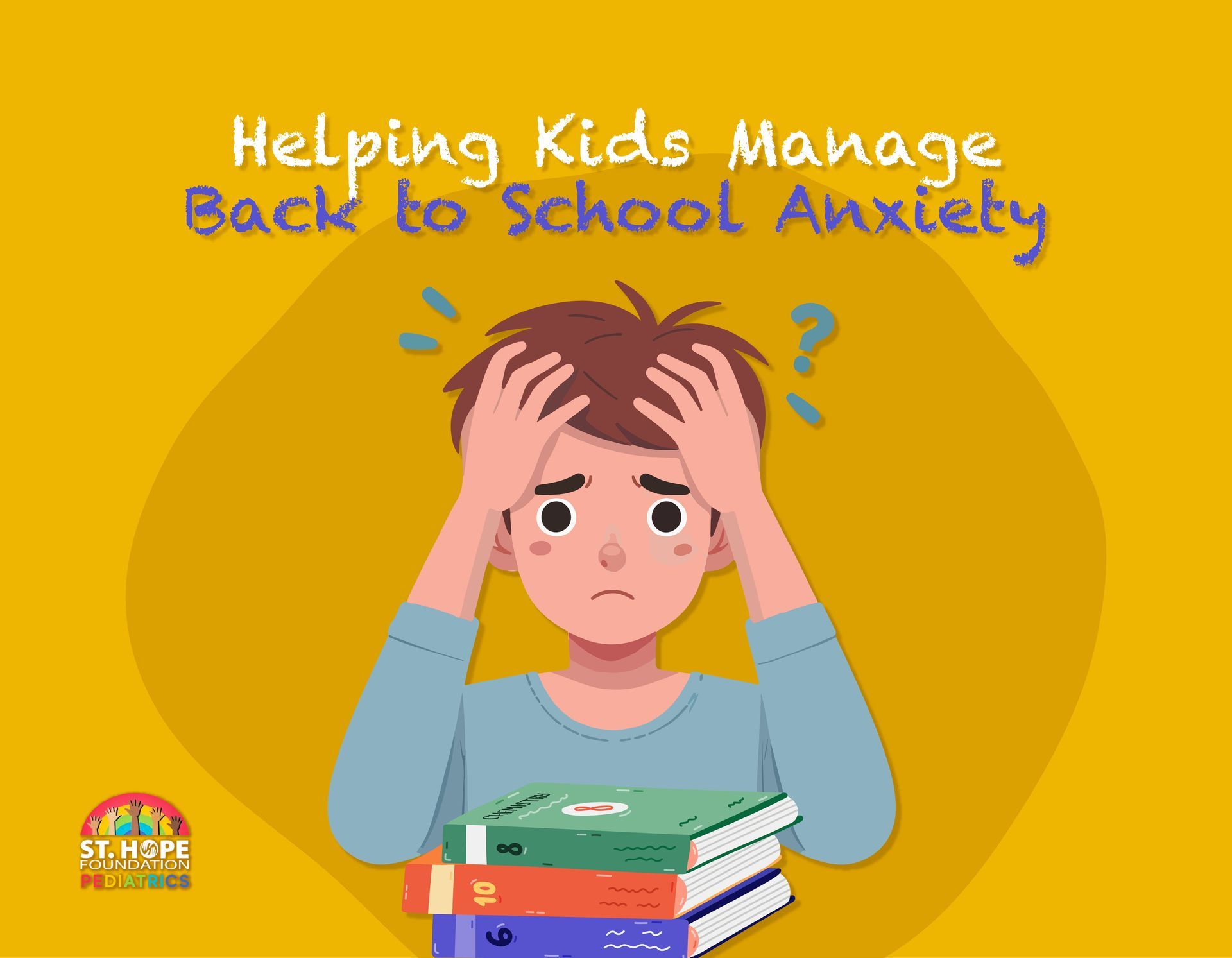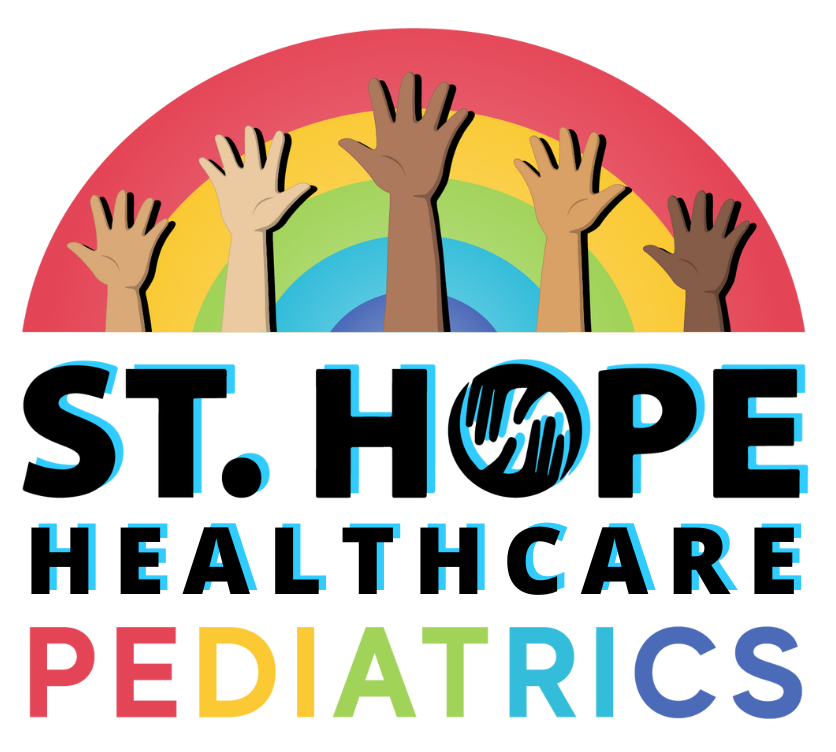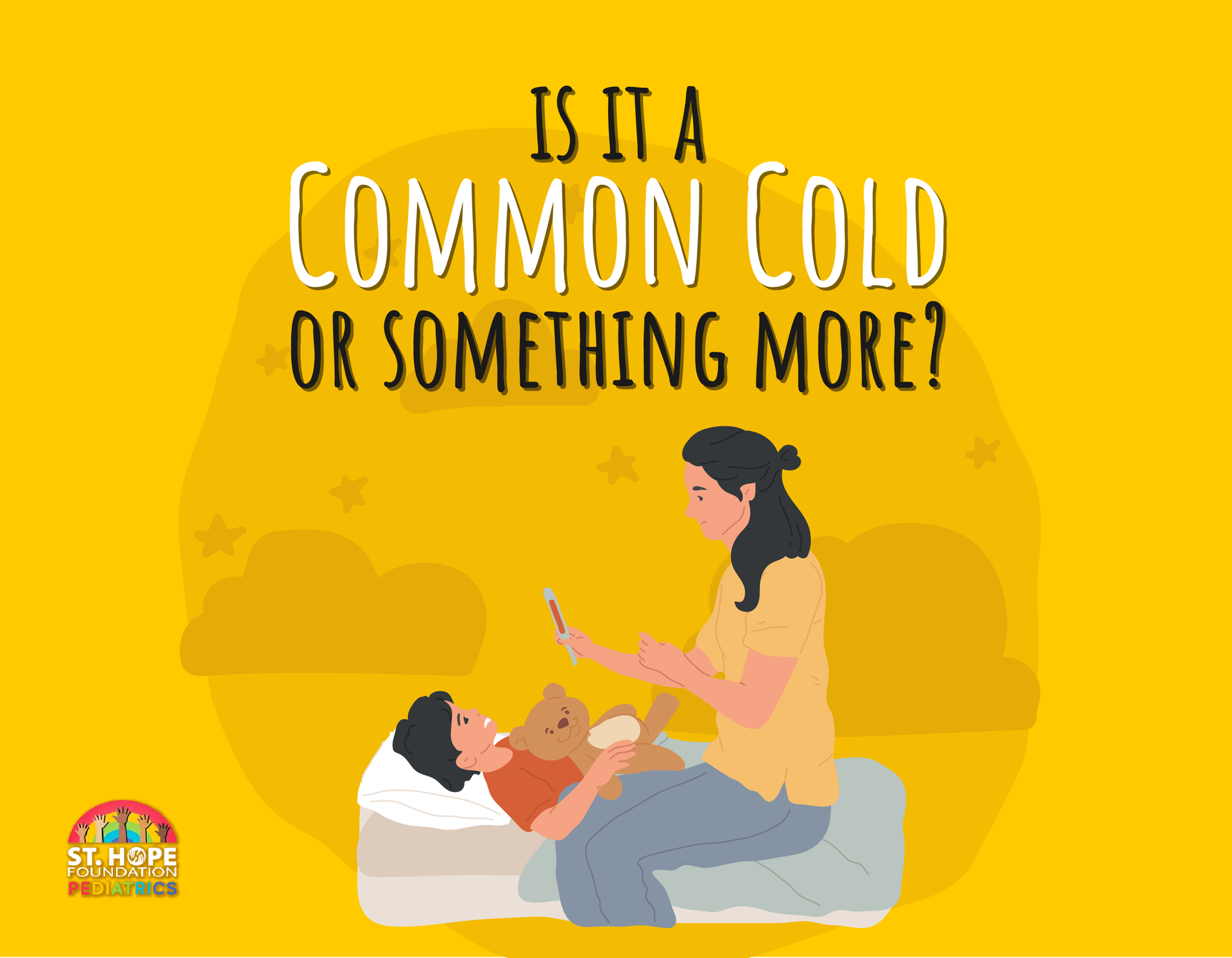
Your child will get a lot of colds as they grow up; in fact, they’ll most likely have about eight to ten colds in their first two years of life alone, sometimes more if they have older siblings. This isn’t that worrying, as the common cold is essentially harmless, but what if it’s something more? Some viruses and infections – like the Flu, RSV and COVID-19 – can look deceptively similar and have serious repercussions if not promptly and appropriately treated.
What's the Difference Between the Common Cold, the Flu, RSV and COVID-19?
The Common Cold
The common cold is a contagious yet mild viral infection of the upper respiratory system. Symptoms usually appear one to three days after one’s been infected. Unlike most other respiratory infections, it typically resolves itself within a week without pediatric intervention. Children with a cold experience:
- Runny or stuffy nose
- Sneezing
- Mild cough
- Sore throat
- Decreased appetite
- Watery eyes
- Low-grade fever
Flu
Influenza (or the flu) tends to be more intense than the common cold. Symptoms develop quickly and can be more drastic, including a higher risk for complications and prolonged illness, especially in younger children. Children with the flu often exhibit a sudden onset of:
- High fever
- Headaches
- Muscle aches
- Earaches
- Runny nose
- Fatigue
- Persistent cough
- Occasional vomiting and diarrhea
Respiratory Syncytial Virus (RSV)
While RSV usually goes away on its own, it can be dangerous for infants and young children. The early symptoms of RSV develop gradually, only appearing four to six days after infection. They closely resemble those of a common cold, such as a runny or stuffy nose, decreased appetite, sneezing and a mild cough. However, if RSV persists, it can progress to more severe respiratory distress, with symptoms including:
- Fever
- Intense coughing
- Wheezing
- Difficulty breathing
Premature babies who contract RSV are also at high risk of developing complications from the virus, including bronchiolitis and pneumonia – both of which can impact their ability to breathe and thus require prompt hospitalization.
COVID-19
COVID-19 is a viral infection that shares some symptoms with the flu and common cold but is also more unique. It’s the most gradual of the three, with children not showing symptoms until about six days after being infected. In addition to respiratory symptoms like a cough, shortness of breath and a sore throat, COVID-19 may also present distinct signs such as:
- Fatigue
- Loss of taste or smell
- Gastrointestinal issues
In severe cases, children may also experience:
- Persistent chest pain or pressure
- Nausea
- Confusion
- Bluish lips or face
When Should I Bring My Child in For a Sick Visit?
While the common cold typically resolves within a week without medical treatment, more serious illnesses tend to persist or worsen without appropriate care. If the symptoms your child is experiencing remain mild, contained to just a runny nose and sneezing, your child is likely dealing with a cold. However, if they start to develop a high fever that doesn’t respond to over-the-counter medications, severe coughing, signs of dehydration or difficulty breathing, you should bring them to a pediatrician immediately.
At St. Hope Pediatrics, we have the experience and expertise to provide an accurate diagnosis and determine if your child’s ailment could be something more serious like the flu, RSV or COVID-19.
You can learn more about sick visits and see our comprehensive list of signs your child may need to visit our pediatric wing here.
Our Experienced Pediatricians Can Give Houston Parents Peace of Mind
At St. Hope Pediatrics, our rapid lab services will quickly identify your child’s ailment, and our doctors can provide the prescriptions and home care advice required to manage their symptoms and promote a quick recovery. We’ll be with you every step of the way, providing your child with focused and compassionate medical attention so they can start feeling better sooner.
Learn more about how we’ve been helping families across the Houston metro area protect their children from viruses and illnesses on our website. And please don’t hesitate to schedule a sick visit if you have concerns or a general wellness appointment for your child today by calling (713) 778-1300.

